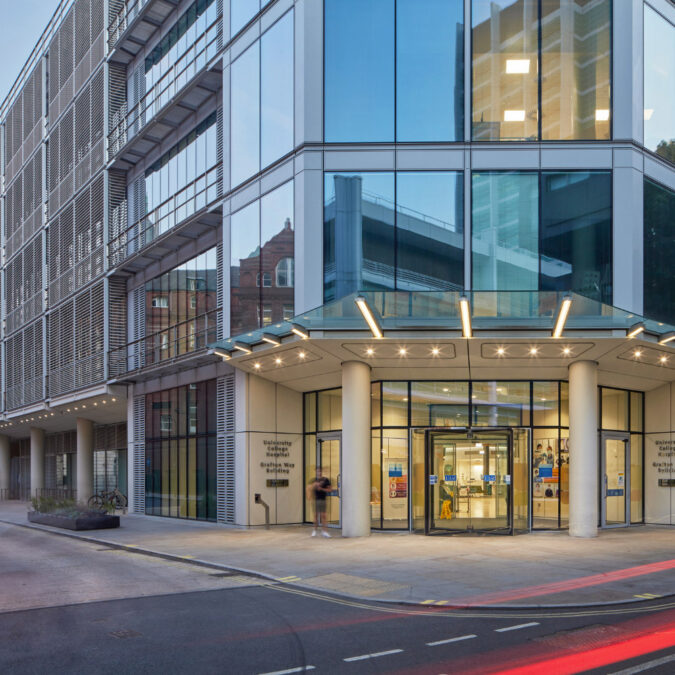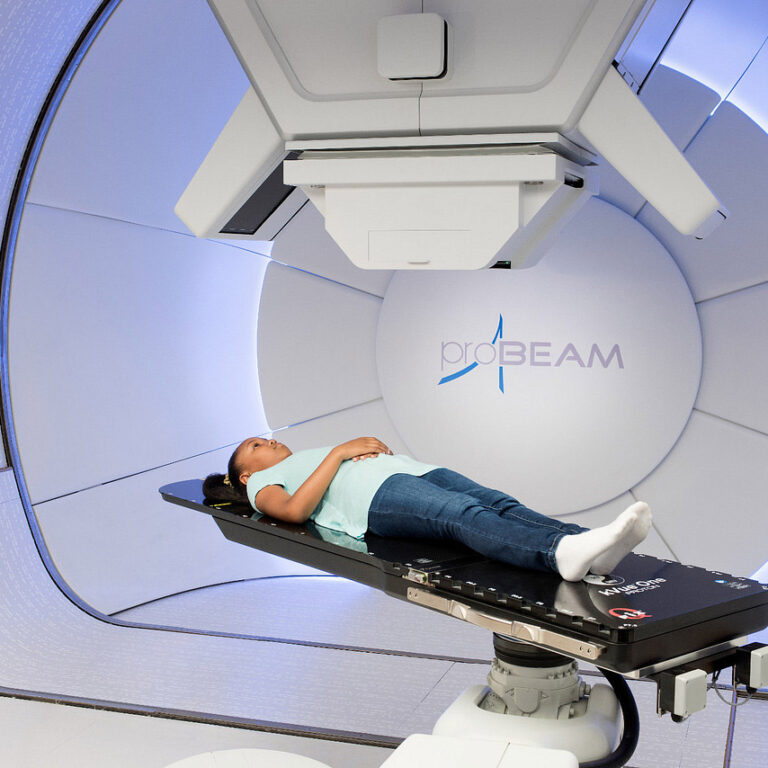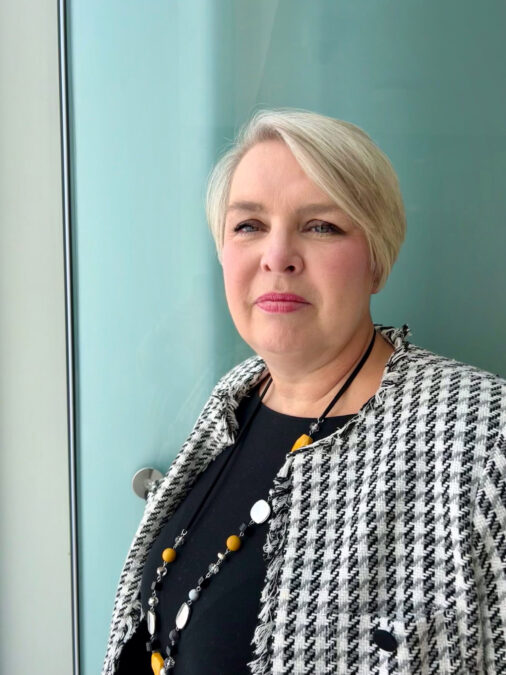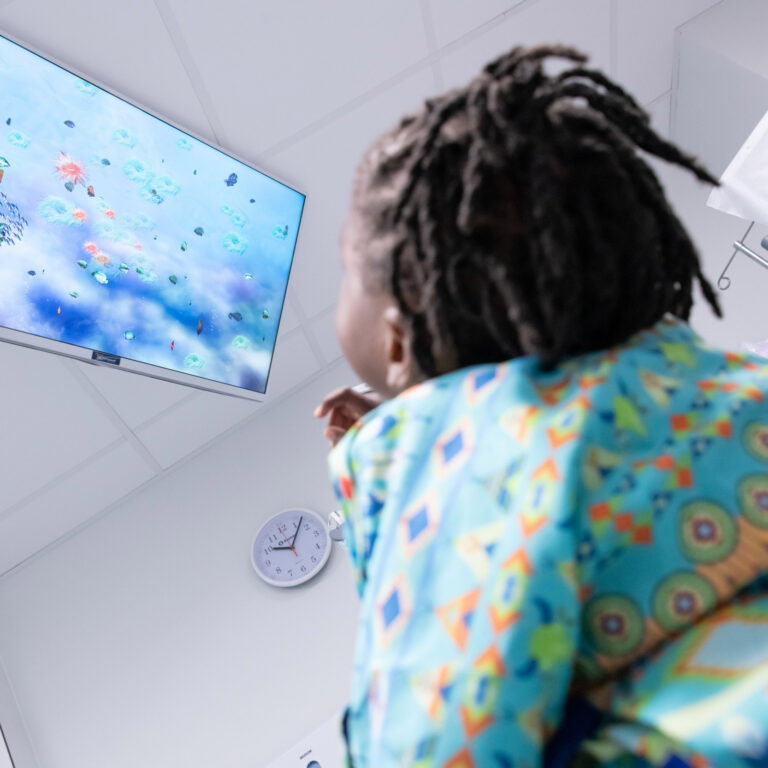Private proton beam therapy treatment for children and young people with cancer
At Proton International London, the UK’s only private proton beam therapy service, we deliver precise, protective, and powerful treatment for a wide range of paediatric cancers.

Who we are
At Proton International London we deliver the most effective and precise treatment to our paediatric patients at our specialist proton beam therapy treatment centre at UCLH.
Learn moreAbout Proton Beam Therapy
An advanced form of radiation therapy with sub-millimetre accuracy on targeting tumors twhile minimising damage to surrounding healthy tissue.
Learn moreMeet our paediatric cancer specialists
Our treatment is provided by globally recognised consultant oncologists in the treatment of childhood cancers.
Learn moreHere to help you
Our friendly team are here to answer any questions you may have about our treatment for cancers in children and young people.
Learn more
Cancers in young babies, children, teenagers and young adults cancer present a unique set of problems for treatment because their bodies are developing and growing.
Being able to closely target tumours and spare critical organs and normal tissue structures in children is essential to prevent the detrimental impact of treatment on their ongoing development and future life quality.
Late effects of radiotherapy are common and may manifest months to years after therapy. The great theoretical advantage of proton beam therapy (PBT) compared to conventional radiotherapy, is the reduction in collateral damage to normal tissue structures. This is especially important in young patients.

Private paediatric cancer treatment at Proton International London
At Proton International London Private Proton Therapy Centre, we specialise in treating a wide range of paediatric cancers.
Located at University College Hospital (UCH), the private service is offered by Proton International, which brings unmatched global experience and expertise in providing PBT, an advanced and extremely precise form of radiotherapy, to communities across the world.
Our highly respected oncologists work in conjunction with the first-class team at University College Hospital (part of University College London Hospitals NHS Foundation Trust). They have a strong interest in clinical research and provide a comprehensive and high-quality service to paediatric patients with a variety of cancers. They have extensive experience in treating cancer in children and offer PBT as a unique treatment option in the UK.
The availability of PBT as a treatment is very limited around the world. In spite of its scarce availability, however, it has been shown to be effective in treating certain cancers in children, whilst also having minimal side effects on a child’s development.

The cancers we treat for children and young people
Proton beam therapy can be used to treat a variety of cancers that may occur in children and young people.
The following list is not exhaustive but includes:
- Brain/central nervous system cancers (CNS) include glioma, medulloblastoma, ependymoma, atypical teratoid/rhabdoid tumour, craniopharyngioma, and germ cell tumour.
- Sarcomas, including chordoma/chondrosarcoma, Ewing’s sarcoma, osteosarcoma, rhabdomyosarcoma and others.
- Neuroblastoma.
- Wilms tumours.
- Spinal cord tumours.
- Lymphomas, including Hodgkin and non-Hodgkin lymphoma.
- Cancers in the head and neck, including the parotid gland, nasopharyngeal and others.
- Cancers affecting the eye, such as retinoblastoma.
To date, in the UK, much of the focus for PBT in children and young people has been on localised cancer tumours (cancers that have not yet spread in the body beyond the primary tumour site).
Cancers in parts of the body that are most sensitive to radiation exposure, such as in the brain, spinal cord, head and neck, where long-term damage could be caused and seriously impact a child’s future life chances and well-being, are especially likely to benefit from PBT, although cancers in all sites of the body can be considered for PBT.

The benefits of proton beam therapy for treating cancers in children and young people
When cancer is diagnosed in young patients, there are a variety of treatments that paediatric consultants might consider, but generally, they will include surgery, chemotherapy or radiotherapy or a combination of these. Proton beam therapy is a type of radiotherapy.
Children’s and young people’s bodies are not just smaller than adults – they are still growing and changing, and because of this, there is evidence that certain types of cancer treatment can have a detrimental impact on their adult life years after the treatment has finished.
Late effects of radiotherapy are particularly high in children and young people due to the vulnerability of growing tissues so where possible, doctors will try to find an optimal treatment which will cure the cancer and also have minimal effect on a child’s development.
PBT targets and destroys cancer cells using high-energy protons rather than X-rays (photons) or other high-energy radiation sources.
Sometimes called particle therapy, it is very precise in how it delivers a dose to the tumour while sparing normal tissues. It is this enhanced precision and normal tissue sparing compared with photon radiotherapy that provides particular benefits.
Proton beam therapy is considered a good treatment option for certain types of paediatric cancers for several reasons:
• Proton beam therapy can be precisely aimed and controlled to deliver radiation to a tumour while avoiding exposing surrounding healthy tissue and organs to unnecessary radiation, particularly beyond the tumour – called an ‘exit dose’.
• By sparing healthy tissue, PBT can potentially reduce toxicities during treatment which in turn can reduce the risk of side effects and late toxicities.
• The accuracy with which PBT can be delivered and the normal tissue sparking can allow a high(er) dose of radiation to the tumour, which can be particularly effective for certain types of cancers that are resistant to other treatments.
• Studies suggest that PBT can result in improved outcomes for paediatric patients – high rates of tumour control and fewer side effects for certain types of cancers.




Paying for your child’s private proton beam therapy treatment
The treatment at Proton International London is available to sponsored, insured and self-pay patients, both from the UK and abroad.
We work closely with embassies, have agreements with key medical insurance providers, and can provide a range of payment options for patients who wish to self-pay. The cost of proton beam therapy will vary depending on the cancer site and the complexity of the treatment required.
Our team is available to discuss costs with you and to advise on payment options.

Helping patients from overseas
At Proton International London, we warmly welcome patients from around the world.
Our friendly and experienced team are here to support our international patients through every step of their proton beam therapy journey.
We have a dedicated concierge team who can assist with all aspects of your care, including:
- Travel to Proton International London including organising flights and visas
- Interpreters for all languages
- Accommodation for the duration of your stay
- Clinical/medical support
- Payment of treatment through insurance or sponsorship
We guide and support international patients through every stage of their proton beam therapy journey.

Contact us
If you or someone you know is interested in learning more about using proton beam therapy to treat childhood cancers, don’t hesitate to contact our team using the form below.
We will get back to you as soon as we can. If you’d like to determine your suitability for proton beam therapy at Proton International London, please complete our patient information form.